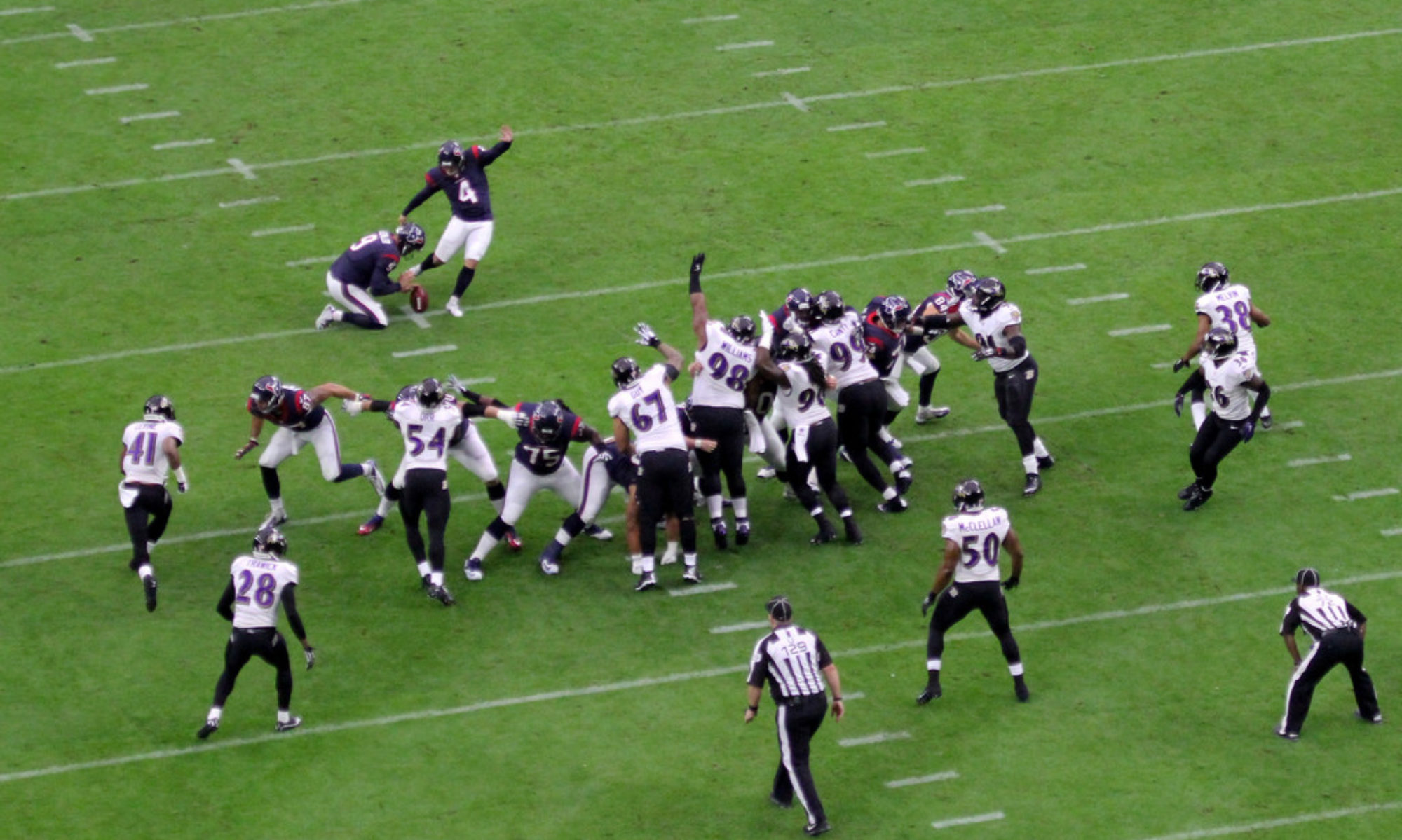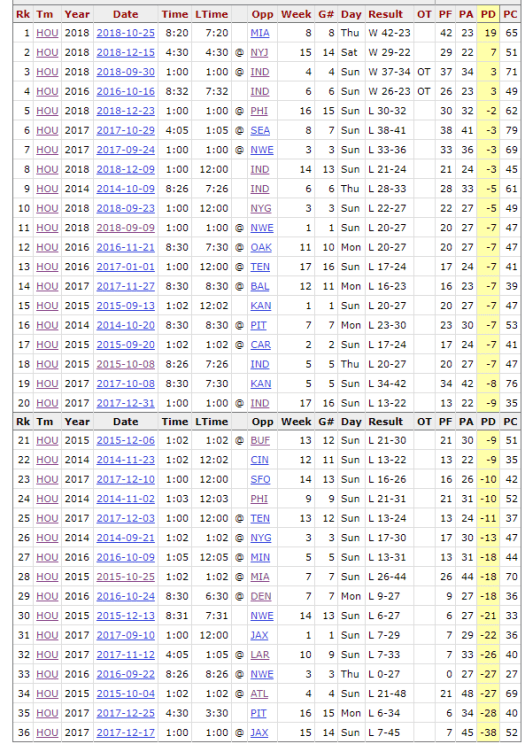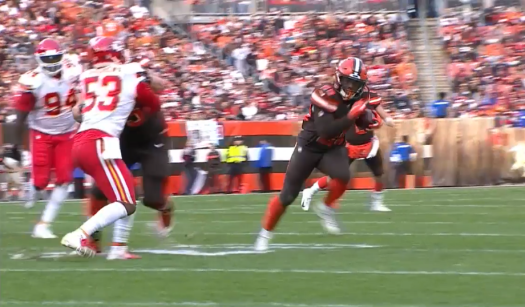
On late Friday night and early Saturday morning, as teams were making their roster cuts, we learned exactly how Bill O’Brien feels about his job security.
The Texans, in the midst of a losing battle with Jadeveon Clowney, either could not or would not try to undo four weeks of bitterness and in-fighting that was designed to send Clowney to Miami. O’Brien surrendered and gave Clowney away to the Seahawks for Jacob Martin, Barkevious MIngo, and a third-round pick. The Texans were likely to get the pick anyway, as Clowney would have received a large free-agent contract and the Texans could have recouped a third-rounder as a compensation pick at the very least. Seattle reporters were saying that Mingo was likely to be cut. Martin, who had three sacks last year, would be an unlikely success story if he somehow came out of the wilderness.
In surrendering two first-round picks to the Dolphins, O’Brien had to come clean with his failings. Matt Kalil was never a left tackle answer, which anyone with access to five years of statistics and viewings of him could see. Tytus Howard was not an NFL-ready left tackle on Day 1, and the Texans refused to budge up some picks to get Andre Dillard, who went one pick ahead of them. While O’Brien’s role in trading Duane Brown is more unknown, he certainly didn’t raise a stink about Brown getting sent away for a second-round pick that opened up the hole in the first place. The Brown trade is, at this point, the most important turning point in franchise history. The dominant storyline of the 2018 season that the Texans never adequately replaced Brown. Regardless of whether Deshaun Watson causes more sacks empirically (true!), the tackle play was so poor last season that it exacerbated the problem. The cap space that the Texans saved by dealing Brown was not spent until the Laremy Tunsil trade was consummated.
***

You employ a general manager to prevent the Laremy Tunsil trade from happening.
First-round picks don’t get traded very often in the NFL. They almost never get traded for established players. Odell Beckham could only fetch one first-round pick. Keyshawn Johnson fetched two. Khalil Mack fetched two. Ricky Williams. Jay Cutler. Jeff George. Herschel Walker. Fredd Young. Eric Dickerson. Jim Everett. The only player on the list of people who fetched two who we don’t think of as a waste of the picks is Mack, and that’s only because we don’t know the entire story of that trade yet because it’s so young.
Teams that are trading two first-round picks are expecting either a transformational result to their team, a window for winning now that will soon close, or both. I think Tunsil is both a really good left tackle and someone who can’t possibly live up to the billing of this price tag. I don’t think Joe Thomas or Anthony Munoz in their primes could live up to this price tag. The person I feel the most for with this trade as far as how his on-field stock will suffer is Tunsil — he may have more leverage than any tackle has ever had, but he is not an entire offensive line unto himself. He won’t make Nick Martin block better. He can’t make Howard be NFL-ready on Day 1. Left tackle was the biggest part of Houston’s offensive line failures, but it was hardly the only part. He has now become a talking point in the sacks debate — he’ll be memed relentlessly any time Watson takes multiple sacks in the same series — and he doesn’t really deserve that. The expectations that are about to be thrust on him are going to define his career more than his play.
The Texans were able to trade these picks because Bill O’Brien cares about keeping his job and nobody was there to stop him. In that regard, it reminds me a lot of Hue Jackson’s Carson Palmer trade with the Raiders in the early 2010s. The power dynamic was broken and fractured around a recently deceased owner, the head coach seized control, and the head coach made a move that benefits only the head coach. It took several years for the Raiders to even become a functional franchise again. The Texans are in a better place than that, but in dealing all of their upcoming first-round picks, they have locked themselves into their roster as it stands, plus whatever they’re able to come up with in free agency.
They made this win-now move without even trying to keep Jadeveon Clowney. The franchise tag has a dark irony here, because in trading Clowney, the needs of the franchise were put below those of the head coach.
Bill O’Brien needed Jadeveon Clowney to be gone, because winning power struggles is more important than winning football games. When he went all-in on trading for Tunsil, that crystallized harder than anything else. Because if this franchise was committed to winning now, Jadeveon Clowney should have been a big part of that.
***
Let us briefly consider the nature of these moves and how they affect the stock of the 2019 Houston Texans.
With Andrew Luck retired, the Texans entered Friday afternoon with about an even shot at winning the AFC South. Some are backing the Jaguars. I would have personally picked the Titans. I don’t think the Colts are hopeless — I think they’ve got a puncher’s chance as well.
Tunsil is a true star left tackle with Pro Bowl ability. He is a massive upgrade for Watson’s blind side. Per Sports Info Solutions he finished with only 12 blown blocks allowed in 818 snaps, and allowed just two sacks. That puts him just outside of the top 20 tackles in the NFL in terms of blown blocks per snap. He did have a lot of penalties — nine of them, and 21 in the last two seasons. But otherwise, I think you could say he’s clearly one of the ten best left tackles in the league. He could play up to a top-five ranking in time.
Kenny Stills is an intriguing deep threat that the Texans didn’t have last season after Will Fuller went down. DeAndre Hopkins can win deep. Keke Coutee, when healthy, could win deep. Fuller’s health has been in consistent flux. I think the easiest way to frame this acquisition is that it is one that stabilizes the range of outcomes. Nobody knows if Coutee will be healthy except O’Brien, because they don’t talk about injuries. Nobody knows if Fuller can play a full season. Stills can be 70 percent of Fuller. Stills didn’t get a chance to use his deep speed in Adam Gase’s snoreball offense.
In losing Clowney, the Texans have committed to getting no pass-rush up the middle at all. They have committed to needing Whitney Mercilus to win on the edge. (I do think Mercilus can do this, but obviously Mercilus is not Clowney and will not play up to Clowney’s level.)
I think these moves put them a lot more firmly in the driver’s seat of the AFC South. I don’t think they make the Texans Super Bowl-bound, and I don’t think they put the Texans with much more of a chance to repeat 11 wins than they were at before. But the floor has absolutely come up a bit with real protection for Watson and less targets aimed at the lower wideout depth chart that was mostly gashed on cutdown day.
I would still not be surprised if they missed the playoffs. But this is, yes, a win-now move that has the potential to pay off for O’Brien.
***
When this went down I was trying to think about the best way to discuss what happened to the Texans in longform, and I think how I want to go about this is to bring up new Texans spiritual guru Jack Easterby. Easterby has a Twitter. He tweeted this recently, which I’ve been meditating on for a few days:
Easterby’s Twitter is very religious (don’t worry, we won’t talk about that) and very focused on the motivational. He’s got life coach vibes, and my read of the situation from the outside is that he has influenced Bill O’Brien to live his life and accept that mistakes may happen. That it’s okay if mistakes happen. That growth can come from it.
Which is a great philosophy to have as a human, particularly if you live in as consequence-free of a bubble as an NFL head coach is when he removes anyone who would challenge him. Bill O’Brien could get fired tomorrow and immediately get offers to be a college head coach somewhere. He may even have cultivated enough fans in NFL circles to get a head job. At the very least, he could absolutely walk in somewhere as an offensive coordinator. His circumstances would not change very much. If I made a terrible mistake tomorrow and found myself homeless, I have friends to talk to, I could find some temp work somewhere. I would be down, but I could recover with resilience.
Football teams are not people. Football teams are crippled by mistakes. When SMU got the death penalty, they didn’t come back as a major college program. When the Browns were shooting themselves in the foot over and over again, it didn’t matter how many draft picks they had — they couldn’t scout to save their lives. The 49ers and Raiders each spent turns being the laughingstocks of the NFL because of their leaders feeling this need to make, as Easterby says in this Tweet, a huge impact. Part of being a good leader is understanding your weaknesses and your blind spots, and employing people to help you through them.
If, after acquiring Deshaun Watson, the Texans were run solely by a Madden AI General Manager who picked and re-signed their best players, went after only the best free agents, and only drafted players who were high on consensus media draft boards, I think they would be in a better position as an organization than they were today. They would have Brown, Clowney, two first-round picks, would probably have made a real run at a left tackle in the draft or in free agency. Would probably not have let Rodger Saffold get away from them over a small sum. Continued salary cap expansion means that they’re in no real danger of losing Watson as long as he wants to play here.
The impact that O’Brien is making is one crafted out of his desire to put his stamp on this. What happened this Saturday as O’Brien realized that his stamp on this season was a failure was desperation. The Texans are in a much better spot to overcome this than most teams, because they have hit on Watson. Had they decided to try a win-now, aggressive, strategy in the first place, they probably would not have gotten fleeced as badly as they did.
O’Brien is human. O’Brien is learning. O’Brien is definitely making a big impact. It is the organization that is suffering for his mistakes, not him.




